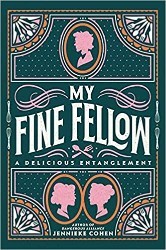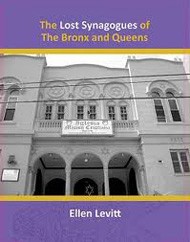Esther Bat Hanan, the heroine of Lori Banov Kaufmann’s new historical novel for young adults, Rebel Daughter, is the daughter of a Temple priest in Jerusalem during the tragic Jewish War against Roman occupation. Between 66 and 70 C.E., the colony of Judea was torn by internal factions but ultimately chose to fight against the overwhelming power of the Roman Empire. This formative episode in Jewish history unfolds from the perspective of one exceptional young woman, whose character is based on an intriguing grave inscription found in Italy, marking the resting place of a Jewish captive brought to Rome. Esther is intelligent, curious, and insightful. She questions her own motives as well as those of everyone around her, including the members of her conflicted family. In spite of the fact that readers may know the outcome of the larger picture, which culminated in the destruction of the Temple and the cruel repression of Judea’s inhabitants, Esther’s personal fate is undetermined. Kaufmann’s carefully researched and well-crafted narrative draws readers into Esther’s role in turbulent events, as well as her full range of emotions and difficult personal decisions.
Constantly questioning the cultural norms that prohibit women from learning, Esther convinces her father to teach her to read and study, not only Hebrew but also Greek. She observes him enacting the complex ceremonies of Temple sacrifice and feels viscerally connected to the Jewish people, even more so as their lives become progressively more threatened. Esther’s relationship with her mother, Sarah, is much more compromised by Sarah’s accommodation to men’s control of women, as well as by her unresolved grief at the loss of a young son before Esther was born. Esther’s sadness of her mother’s rejection remains a looming presence and an undeniable influence on all of the young woman’s relationships. Kaufmann avoids anachronisms; Esther’s rebelliousness does not extend to all prescriptive gender roles of her time. Rather, she struggles to reconcile her personal needs with the demands of being a dutiful daughter and member of Jewish society.
Some of the major characters are based on historical figures including Joseph Ben Matityahu, better known as Josephus, author of The Jewish War. This first century C.E. account by a Jewish leader, who first fought the Romans and later changed his allegiance to the winning side, is both deeply informative and controversial. In Kaufmann’s novel, the man sometimes viewed by Jews as a collaborator is presented from a different angle, as the object of Esther’s physical and emotional attraction. The ambiguities of his role in history become part of his possibilities as a mate. Esther is torn between her desire to trust this handsome and dynamic man and her awareness that his morals might be more flexible than they should be. The idea of Josephus as the object of a strong young woman’s sexual ardor and of her simultaneous skepticism certainly offers a new perspective on this chronicler of Jewish nationalism.
Roman and Jewish ideals and culture are strongly contrasted in this book. Indifference to morality, gratuitous torture of their subjects, and debased personal relationships are all opposed to the Jewish values of scholarship, fidelity to the law, and the centrality of family. There are even descriptions of Roman atrocities that foreshadow the Holocaust, such as detailed scenes of utter inhumanity and the use of the term “selections” in determining which captives will be allowed to live. Yet there are some dishonest and disloyal Jews in the story, as well as Jewish political extremists who fail to assess their political situation realistically. At the same time, a Roman citizen, the formerly enslaved Tiberius, is one of the most nuanced characters; he causes Esther to reevaluate all of her assumptions. She gradually learns to reconcile her aspirations for freedom and the terribly limiting circumstances of her time. At one desperate moment, Esther compares her lack of free will to the status of “an insect trapped in pine resin.” By the novel’s conclusion, she has negated this metaphor and broken free.
This highly recommended story includes an author’s note, and a thorough historical note by Professor Jonathan J. Price of Tel Aviv University.
Emily Schneider writes about literature, feminism, and culture for Tablet, The Forward, The Horn Book, and other publications, and writes about children’s books on her blog. She has a Ph.D. in Romance Languages and Literatures.





